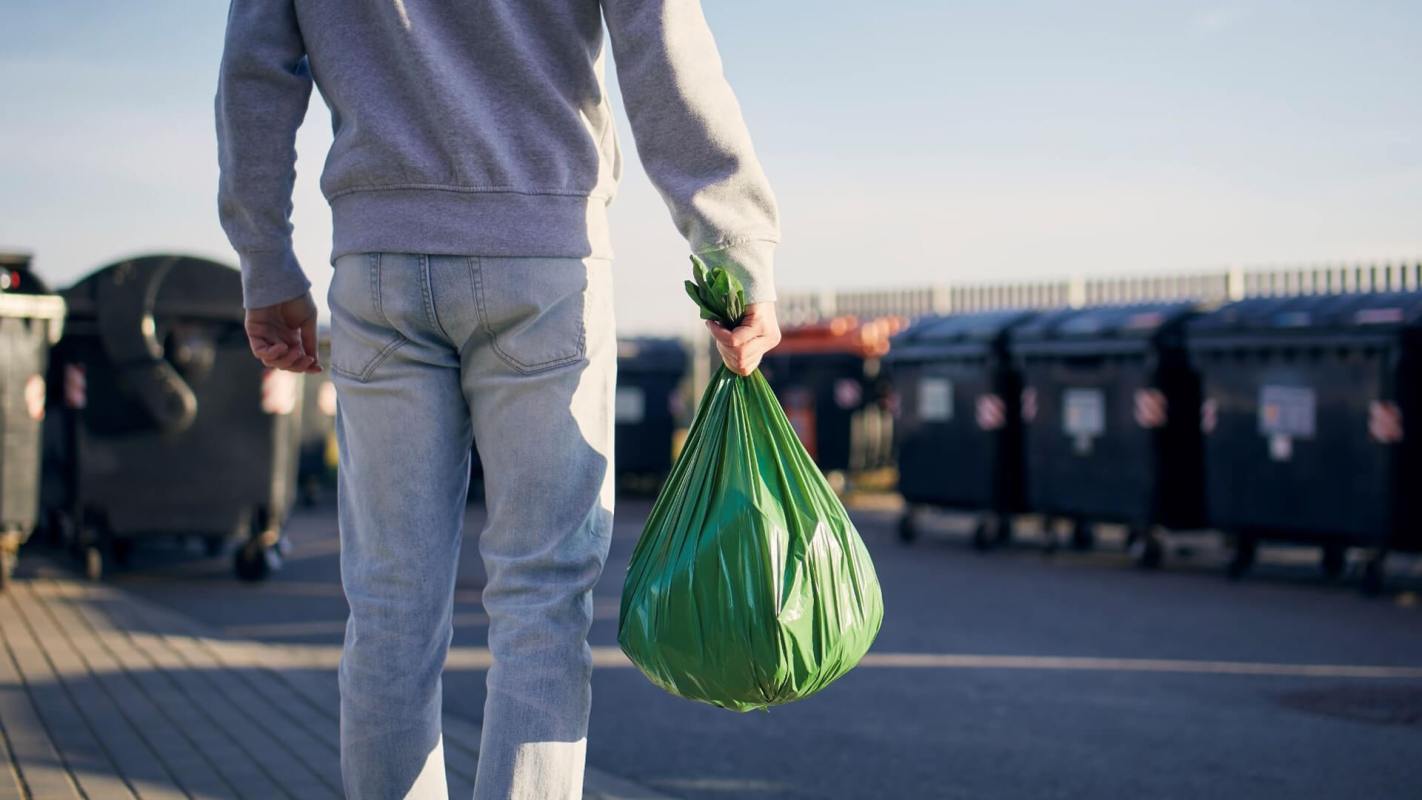We all create food waste, whether it's those "lost in the back of the fridge" berries or that spinach that seems to wilt at the speed of light.
But individual people aren't solely to blame for the estimated 80 billion pounds of food that Americans throw out annually.
Food retailers often throw away unsold foods, lining trash bins with perfectly edible items — wasting a whopping 31% of our food supply. To take advantage of this opportunity, many people have turned to "dumpster diving."
What is dumpster diving?
Dumpster diving is the salvaging of discarded and unused items from commercial, industrial, or residential dumpsters. Basically, "one man's trash is another man's treasure."
Many might find the idea of picking food out of the trash repulsive, but it's important to note why these foods get thrown out in the first place.
Major grocery chains often deem imperfect-looking produce unsellable, throwing it out simply because it has bumps, bumps, or just a strange shape. They also toss out prepared foods that are near their "best by" date, but far from spoiling. The list goes on, but many dumpster foods are safe to eat once thoroughly washed.
@lookoutformichelle 👁 #dumpsterdive #dumpsterdiving #dumpsterdiver #freefood #foodwaste #scrappy #trash #garbage #vegan #freegan #matrix #breakfree #eatyourvegetables ♬ Good Day - Nappy Roots
Why is dumpster diving important?
The most apparent benefit of dumpster diving is the money you can save, which depends on where you dive and what you recover.
One woman in Ireland cut her monthly food bill for two people down to 85 euros a month (around $90) through dumpster diving. In Ireland, the average amount spent on food for one person is about 220 euros (about $231).
Recovering produce and meals from dumpsters helps the planet by preventing this food from going into landfills and releasing pollution. The EPA estimates that the U.S.'s total annual food waste releases as much carbon pollution as 42 coal-powered plants. This carbon pollution is part of what's causing the planet to overheat and intensifying extreme weather events.
Dumpster diving won't solve food insecurity and the ramifications of this waste. It can inspire change within your community and encourage food retailers to discard fewer items.
"I would be very pleased to see grocery stores reduce what they throw away," L.A.-based dumpster diver Eric Einem told the Daily Sundial.
How to start dumpster diving
Before you start dumpster diving, check your state and local ordinances. Though it's legal in all 50 states, beware of strict trespassing laws.
You'll need bags or boxes to hold your finds, gloves to protect your hands, and a flashlight or camping headlight if you're dumpster diving at night.
Sift through bags carefully, making sure to avoid ripping bags. When you've finished sorting through a trash bag, tie it up and replace it in the dumpster.
Use your better judgment — don't take foods you're worried about. To err on the side of caution, avoid meat products.
Once home, wash your food thoroughly. If you realize you took too much, consider hosting a potluck; sharing food with family, friends, and neighbors; or donating to a community fridge.
Follow The Cool Down on Instagram and subscribe to our newsletter.







